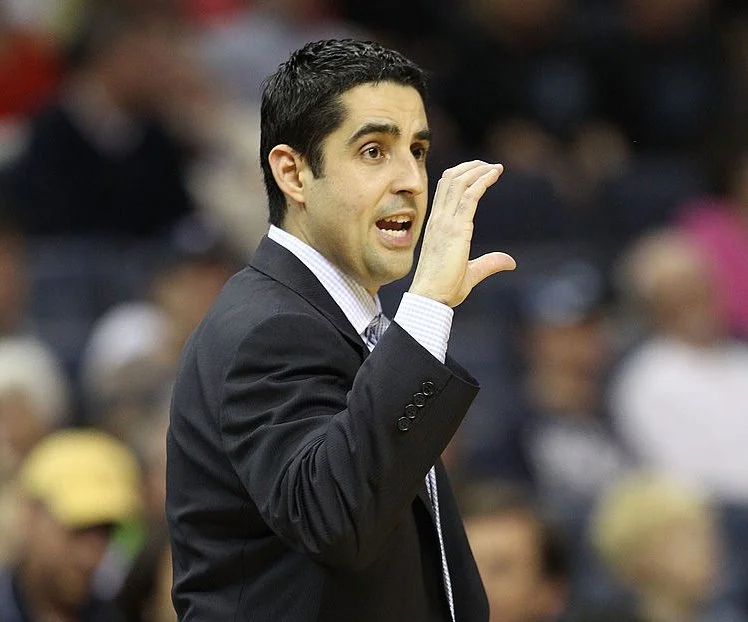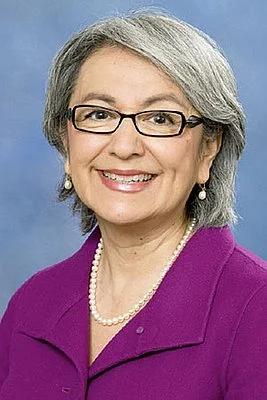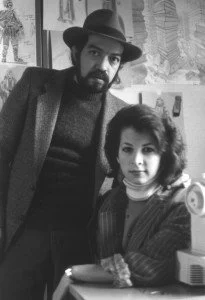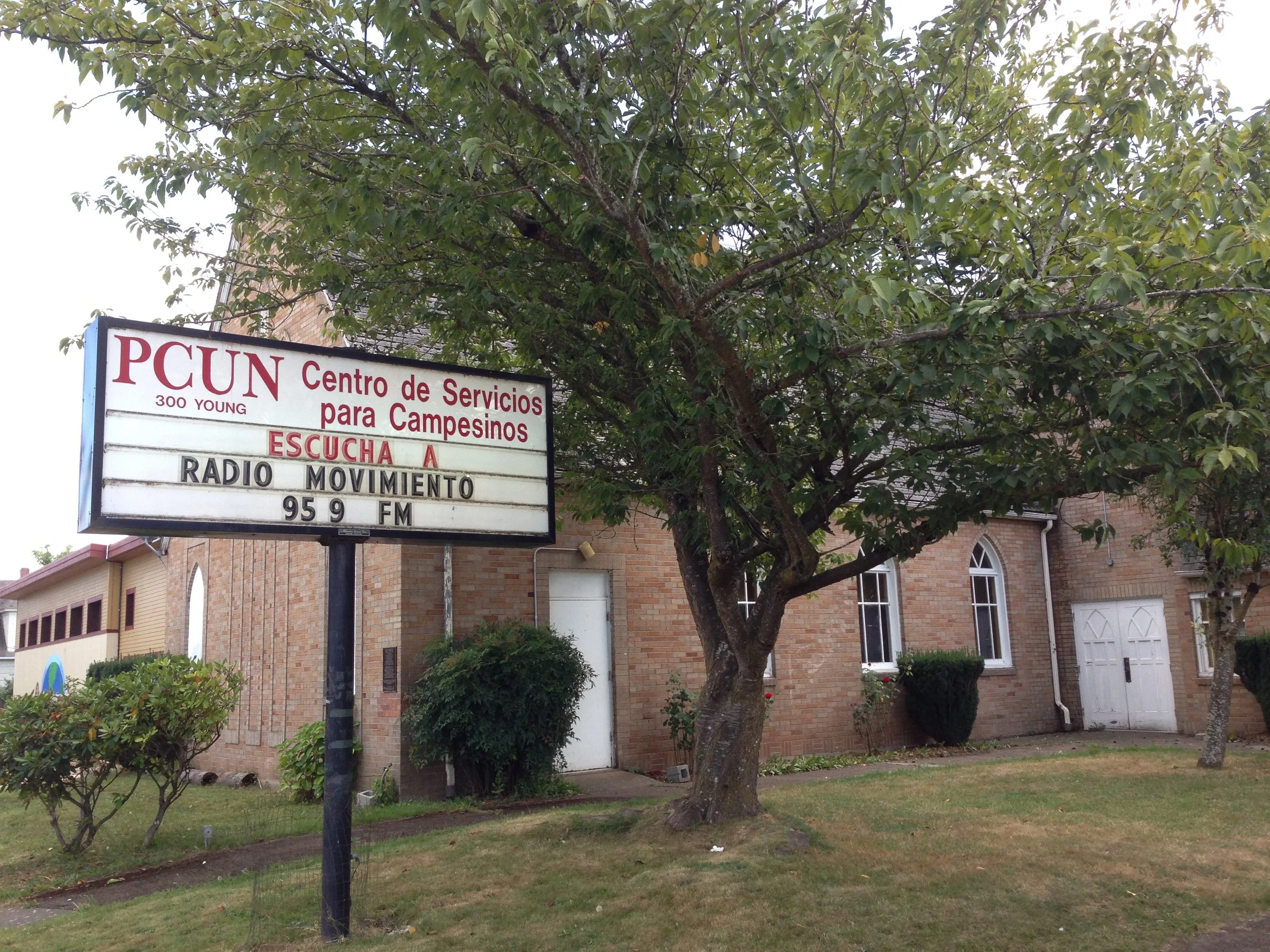Oregonians
Kaleb Canales
In 2012, Canales was appointed the Portland Blazers's interim head coach, the youngest active head coach in NBA history and the first Mexican-American coach in NBA history.
En 2012, Canales fue nombrado entrenador en jefe interino de los Portland Blazers, el entrenador en jefe activo más joven en la historia de la NBA y el primer entrenador mexicano-estadounidense en la historia de la NBA.
Susan Castillo
The first Hispanic woman elected to the Oregon State Legislature as well as the first to hold office as superintendent of public instruction.
La primera mujer hispana elegida para la Legislatura del Estado de Oregon y la primera en ocupar el cargo de superintendente de instrucción pública.
José Eduardo González and Dañel Malán
In 1985, the pair founded Miracle Theatre Group, a.k.a. Milagro. In 1989, Gonzalez created a Hispanic Cultural Festival, which included plays for adults and children, bilingual poetry, Portland dance troupes, and more. In 1992, they moved into their current space, buying the building in 1997 and continuing to produce shows that celebrate Hispanic culture.
En 1985, la pareja fundó Miracle Theatre Group, a.k.a. Milagro. En 1989, González creó un Festival Cultural Hispano, que incluía obras de teatro para adultos y niños, poesía bilingüe, grupos de danza de Portland y más. En 1992, se mudaron a su espacio actual, compraron el edificio en 1997 y continuaron produciendo espectáculos que celebran la cultura hispana
Paul De Muniz
Elected to the Oregon Supreme Court in 2000, becoming Oregon's first Latino Justice. In 2006, he was elected Chief Justice.
Elegido para la Corte Suprema de Oregon en 2000, convirtiéndose en el primer juez latino de Oregon. En 2006, fue elegido presidente del Tribunal Supremo.
Santiago Ventura Morales
Oregon social worker whose wrongful conviction led to a change in Oregon law. In 1986, Morales was accused of murder; speaking no English, he was offered a Spanish interpreter, but his native language was Mixtec. His conviction was overturned in 1991; he had learned English and earned his GED in prison. After leaving prison, he graduated from the University of Portland with a degree in social work.
Trabajador social de Oregón cuya condena injusta llevó a un cambio en la ley de Oregón. En 1986, Morales fue acusado de asesinato; sin hablar inglés, le ofrecieron un intérprete de español, pero su lengua materna era el mixteco. Su condena fue revocada en 1991; había aprendido inglés y obtuvo su GED en prisión. Después de salir de la cárcel, se graduó de la Universidad de Portland con un título en trabajo social.
Cipriano Ferrel
Founded Pineros y Campesinos Unidos del Noroeste (PCUN) in 1977. PCUN supports farmworkers and reforesters, helping with everything from immigration to health and safety. In 1991, Cipirano was a co-founder of FHDC and later worked as FHDC's community organizer.
Fundó Pineros y Campesinos Unidos del Noroeste (PCUN) en 1977. PCUN apoya a los trabajadores agrícolas y reforestadores, ayudando con todo, desde inmigración hasta salud y seguridad. Fundó FHDC en 1991.






